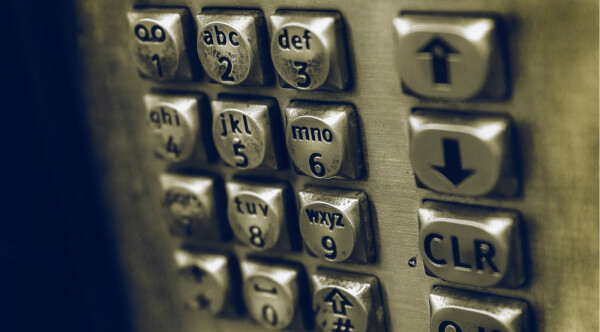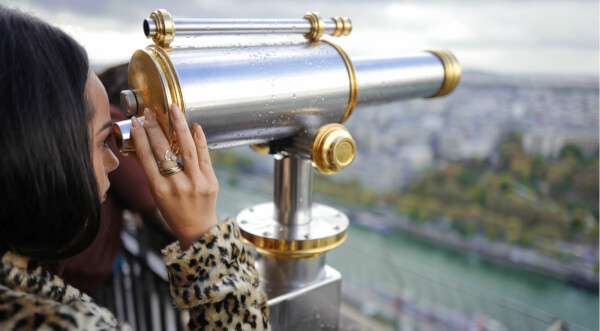Having a baby in the UK? Hospital, midwife, delivery and IVF costs
If you’re expecting a new baby, you’re probably experiencing a range of emotions - excitement, apprehension, joy, and confusion. If you’re a visitor or expat...

Are you pregnant? Congratulations - this is one of the most exciting periods of your life. But if you’re living abroad as an expat, visitor, or non-resident in a different country, navigating a new healthcare system and medical expenses can be overwhelming.
In Dubai, a new child is born every 3.5 hours. If yours will be one of them, read on to find out about the average delivery costs and medical expenses involved with having a baby in Dubai.
Dubai’s public healthcare, managed by the Dubai Health Authority offers a high standard of medical care. There’s also a very strong private healthcare sector. Because of short wait times and high standards, the World Bank ranks Dubai as the second most popular destination for medical tourism in the region.
Like much of Dubai’s culture, private healthcare has a capitalistic feel. Going to private doctors can get competitive. The best private doctors are known to have waiting lists, and as such it’s common for women to start pregnancy under one doctor and finish it under another. As a tourist, it may take some time to adjust and figure out where you’d like to register for prenatal care. Also, private hospitals can feel like luxury experiences, complete with flat-screen televisions, palm trees, and fountains.
Expats living in Dubai might be eligible for a health card, entitling them to free or discounted medical care through the government services. In many cases, private health insurance is provided by employers, so if you’re working look into your work’s healthcare coverage. But many expats choose to get private health insurance so they can access the wide network offered in Dubai Healthcare City, a modern private medical complex with more than 130 medical facilities.
Having a baby in Dubai can be expensive - even with access to the public healthcare. Here’s what you should expect when you’re expecting:
If you have private insurance, make sure they provide maternity coverage so that you don’t have to pay this money out-of-pocket.
Dubai, being part of the United Arab Emirates, uses the UAE dirham for currency and banking. You’ll usually see it written with currency code AED. If you’re comparing costs and want to see AED compared to your home currency, use an online currency converter.
The cost of pregnancy, labour, and delivery in Dubai is higher due to the quality and frequency of care. Unlike Western countries, where you could go through an entire pregnancy with just 1 or 2 ultrasounds, you’ll have many in Dubai. You can expect an appointment every 2 weeks or so. You’ll also have to take a mandatory glucose test to screen for gestational diabetes, and in general, you’ll be subject to a lot of tests. While all of these treatments cost money, they can help you get through your pregnancy with peace of mind.
Many hospitals in Dubai provide maternity packages. Antenatal packages tend to include all of the necessary tests, doctor visits and scans. Delivery packages include the delivery and hospital stay. There are packages for a normal delivery and one for cesarean sections. Antenatal packages change based on the stage of pregnancy you’re in at the time you purchase the package - the later you are, the less it costs, since you’ll be having fewer visits and tests done overall. The quality of care in Dubai is high, but as in other parts of the world, private hospitals are more expensive. Here are some common costs associated with prenatal care and delivery:
| Baby delivery medical procedures in Dubai | Average cost - public hospital (AED) | Average cost - private hospital (AED) |
|---|---|---|
| Antenatal package - Prenatal doctor visit and care, and prenatal ultrasound | 4,000 AED | 5,600 AED |
| Birth and delivery in the hospital - package price | 7,000 AED | 13,000 AED |
| Cesarean section in the hospital - package price | 14,000 AED | 25,000 AED |
| Home birth and delivery with midwife | Prohibited | Prohibited |
Prenatal care in Dubai differs to what you might expect at home. Though relatively common in the Western world, it’s not legally permissible to have a home delivery in the UAE. Midwives aren't permitted to work outside the hospital, and it’s discouraged to have anyone but a highly trained midwife handling medical complications. Some hospitals allow water births, and most hospitals will go for a traditional hospital births in a labour ward or birthing centre.
Another unique aspect of giving birth in Dubai is the marriage requirement. It’s illegal to give birth at all in the UAE if you’re unmarried, so make sure that you make several copies of your marriage certificate and have them at the ready. If you’re pregnant but not married, it’s probably best to make arrangements to give birth outside of the UAE.
The average hospital stay for new moms in Dubai depends on the delivery package that they choose, and the type of delivery. For example, a normal delivery package at the American Hospital in Dubai grants the mother a two-day stay. The same hospital gives mothers a four day stay for a cesarean section delivery.
In Dubai, hospitals encourage mothers to room with their babies, as opposed to placing them in a nursery. They encourage skin-to-skin contact and mother-baby bonding, so you can expect to stay with your little one for the duration of your time in the hospital. There’s also widespread support for breastfeeding, which is encouraged for new moms. La Leche League and other breastfeeding support groups are present, and most public shopping areas have accommodations for nursing mothers.
In Dubai, most hospitals provide nappies for the baby, so you won’t need to worry about packing those in advance. Here are some items you should think about bringing:
You should count on having the following documents with you at the hospital in order to have your baby in Dubai:
The hospital will issue the parents a notification of birth, and from that date, you have 30 days to register for your baby’s birth certificate. You should expect to pay fines if you don’t register within that window. All expats need to get the Arabic and English certificates attested by the Ministry of Health and the Ministry of Foreign affairs. In order to do this you need:
Babies born in Dubai won't be eligible for citizenship unless the father is a citizen of Dubai. The UAE does not favour the practice of allowing foreigners to become UAE citizens, so they don't recognise dual citizenship. In most cases, you’ll only become a naturalised citizen if you stay married to a UAE citizen for ten years or longer; however, this doesn’t guarantee citizenship in all cases, especially if you’re not Muslim. If your child is eligible for citizenship then they can only hold this one.
A new decree in early 2017 granted women who are in full-time or part-time permanent positions in the government up to 90 days of maternity leave. A woman working in the private sector is entitled to 45 days maternity leave. There’s no compulsory paternity leave for fathers in Dubai.
If you’re an expat, you probably live between two countries. This can be complicated when you’re managing logistics like phones, taxes, and banking. When it comes to currency exchange and money transfers, Wise can help you simplify. Wise offers the mid-market exchange rate that banks use to trade with each other, so you miss out on markups, charges, and varying exchange rates.
While becoming a new parent in Dubai isn’t inexpensive, you can rest assured that the quality of care is top notch. There are nuances to the medical system, and many options for health care and insurance. Come back to this post when you need a guide to getting through your pregnancy in labour in Dubai.
*Please see terms of use and product availability for your region or visit Wise fees and pricing for the most up to date pricing and fee information.
This publication is provided for general information purposes and does not constitute legal, tax or other professional advice from Wise Payments Limited or its subsidiaries and its affiliates, and it is not intended as a substitute for obtaining advice from a financial advisor or any other professional.
We make no representations, warranties or guarantees, whether expressed or implied, that the content in the publication is accurate, complete or up to date.

If you’re expecting a new baby, you’re probably experiencing a range of emotions - excitement, apprehension, joy, and confusion. If you’re a visitor or expat...

Dubai is one of the most exciting and fastest-growing cities in the world, leading the globe in all kinds of innovation. In Dubai, bigger is better, and it...

If you’re looking to get in touch with someone in the UK, often your phone is the quickest way to do it. But you want to make sure you’re not calling the...

Whether you’re a non-resident UK citizen or a citizen of another country living in the UK, you’ll need to get clued up about UK taxes. UK non-resident tax...

Home to some of the world’s best museums, restaurants, sports teams, and universities, there’s no doubt that moving to the UK to work, study, or just to have...

Owning a vehicle as an expatriate isn't optional in Dubai. The nation's limited public transportation system is gradually expanding, but still inconvenient...